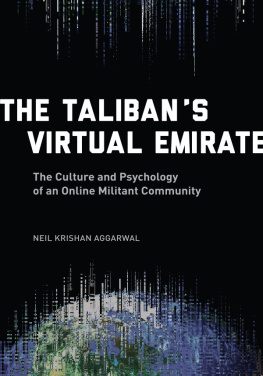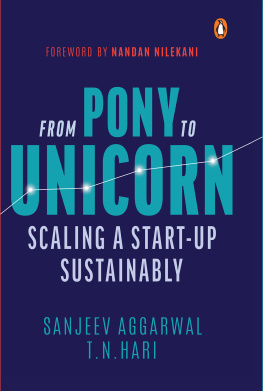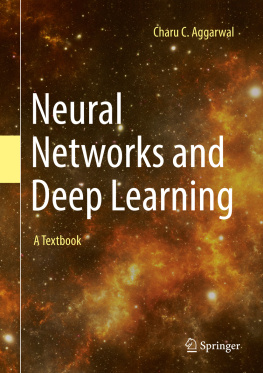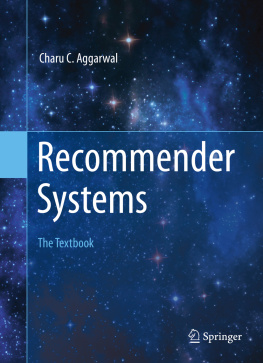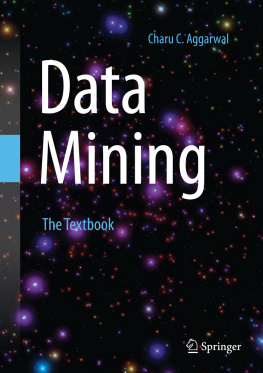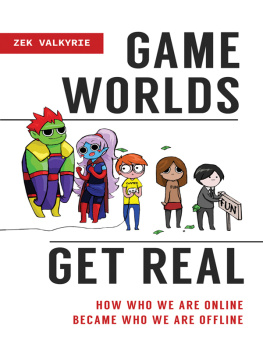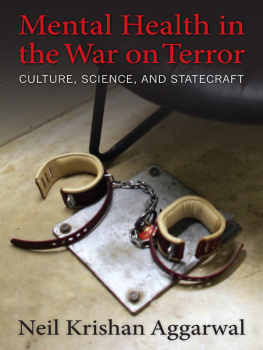THE TALIBANS VIRTUAL EMIRATE
The Talibans Virtual Emirate THE CULTURE AND PSYCHOLOGY OF AN ONLINE MILITANT COMMUNITY Neil Krishan Aggarwal COLUMBIA UNIVERSITY PRESS NEW YORK |
COLUMBIA UNIVERSITY PRESS
Publishers Since 1893
New York Chichester, West Sussex
cup.columbia.edu
Copyright 2016 Columbia University Press
All rights reserved
E-ISBN 978-0-231-54162-6
Library of Congress Cataloging-in-Publication Data
Names: Aggarwal, Neil Krishan, author.
Title: The Talibans virtual emirate : the culture and psychology of an online militant community / Neil Krishan Aggarwal.
Description: New York : Columbia University Press, [2016] | Includes bibliographical references and index.
Identifiers: LCCN 2015035460| ISBN 9780231174268 (cloth : alk. paper) | ISBN 9780231541626 (electronic)
Subjects: LCSH: Virtual realityReligious aspectsIslam. | Taliban. | Virtual realityPolitical aspectsAfghanistan.
Classification: LCC BP190.5.V57 A34 2016 | DDC 302.23/109581dc23
LC record available at http://lccn.loc.gov/2015035460
A Columbia University Press E-book.
CUP would be pleased to hear about your reading experience with this e-book at .
Cover design: Kei Kato/Fifth-Letter
Cover image: iStockphoto
References to Internet Web sites (URLs) were accurate at the time of writing. Neither the author nor Columbia University Press is responsible for URLs that may have expired or changed since the manuscript was prepared.
For purposes of our discussion here, cosmopolitan and vernacular can be taken as modes of literary (and intellectual, and political) communication directed to two different audiences whom lay actors know full well to be different. The one is unbounded and potentially infinite in extension; the other is practically finite and bounded by other finite audiences, with whom, through the very dynamic of vernacularization, relations of ever-increasing incommunication come into being. We can think of this most readily as a distinction in communicative capacity and concerns between a language that travels far and one that travels little.
SHELDON POLLOCK, Cosmopolitan and Vernacular in History, 2000
CONTENTS
I AM GRATEFUL to those who have supported both me and this book.
Generous colleagues: Hussein Abdulsater, Muzaffar Alam, Ali Asani, Alex Barna, Adia Benton, Homi Bhabha, Kam Bhui, Byron Good, Mary Jo DelVecchio Good, Ezra Griffith, Hamada Hamid, Schuyler Henderson, John Horgan, James Jones, Emily Keram, Marilyn King, Arthur Kleinman, Orla Lynch, Matt Melvin-Koushki, Sarah Pinto, Jerrold Post, Annelle Primm, Dan Sheffield, Wheeler Thackston, and Stephen Xenakis. I have edited this book as Shahab Ahmed has succumbed to illness; I hope that he sees his influence in my work and that we joke in the Afterlife about him playing soccer with Osama bin Laden in Afghanistan in the 1990s.
Wonderful friends: Radhu and Meena Agrawal, Rohit Agrawal, Ayesha Ahmed, Iqbal and Sheela Bakhshi, Moustafa Banna, Omer Bokhari, Rachna Dave, Ravi DeSilva, Ashok and Veena Dhar, Lahari Goud, Yusuf Iqbal, Usha and Raj Machiraju, Samir Rao, Sapan Shah, Nabilah Siddiquee, Luvleen Sidhu, Satbir Singh, Vinita Srivastava, Rizwan Syed, and Parvinder Thiara. Also: the Hindu-Jain Temple and Gujarati Samaj of Pittsburgh, Pennsylvania, which have generously publicized my work.
Columbia University Press: Jennifer Perillo, Stephen Wesley, and all the extraordinary people who convert book proposals into books.
My supportive family: in-laws Niraj Nabh and Anshu Kumar, parents Madhu and Krishan Kumar Aggarwal, sisters-in-law Reema Aggarwal and Radhika Kumar, brother Manu Aggarwal, niece and nephew Asha and Roshan Aggarwal, daughter Amaya Ishvari Aggarwal, and wife Ritambhara Kumar.
This book is dedicated to three couples: my parents and my grandparents, Kesar Devi, Nanak, Sarla, and Shyam Lal Aggarwal. Like millions of refugees in post-Partition India and Pakistan, they struggled with new alignments in culture, language, and religious identity in turbulent political times.
THIS STUDY EXAMINES the circulation of psychological and cultural themes across Taliban texts in four languages, namely English, Arabic, Dari (the Afghan dialect of Persian), and Urdu. I retain Arabic transcription for Arabic loan words in Dari and Urdu unless these words are pronounced differently. The latest Chicago Manual of Style (16th edition) indicates a growing scholarly trend toward removing diacritical marks from letters for simplificationa style adopted in this book.
Common words such as Hadith (the texts on the Prophet Muhammads sayings and doings), jihad (literally struggle, though often translated as holy war), madrasa (religious school), mujahideen (holy warrior), Sharia (Islamic law), Quran, and ummah (the Muslim confessional community) appear in customary Anglicized form. Allah and Khuda are both translated as God, and Allh tal is translated as God (may He be exalted). Technical terms are transcribed only if rare or obscure, but full transcriptions are presented in the reference list. Names are only transcribed to differentiate vowel soundsfor example, Rshid versus Rashd. I keep the Talibans own transcription for its Arabic periodical as Al-Somood, rather than Al-Sumd.
I do not translate Quranic text, since Quranic exegesis is an ongoing body of scholarship rife with debate on textual interpretation. Instead, I cite chapter and verse, deferring to A. J. Arberrys standard The Koran Interpreted: A Translation.
IN MY PREVIOUS BOOK, Mental Health in the War on Terror (Aggarwal 2015), I explored the wars effects on mental health knowledge and practice and posited that culture-specific values concerning acceptable thoughts, emotions, and behaviors have influenced the practice of terrorism. In a chapter on suicide bombing, I juxtaposed representations of suicide bombers from mental health scholars with those of Al Qaeda writers to illustrate fundamental discrepancies in common human experiences such as life, death, illness, and suffering.
While the search for Al Qaeda texts took weeks of steadfast searching, as websites migrated, mandated new passwords, or disappeared altogether, Taliban websites defiantly and publicly proclaimed their perspectives. These multilingual websites are not just simple translations from one language into another; English authors attacking Western political philosophy may cite Robespierre and Noam Chomsky while Urdu authors will reference Muhammad Iqbal and Akbar Allahabadi. Taliban authors engage with the War on Terror on their own terms, fashioning texts with viewpoints that follow their respective cultural models for argumentation. For example, a couplet of canonical poetry meant to reinforce an authors theme might be considered trite in a scholarly English article but would be stylistically acceptable in Urdu writing. Because a thorough treatment of this phenomenon would have overwhelmed the first book, I realized that another volume would be necessary.
An analysis of the Taliban primarily through its own sources and in relation to secondary scholarship gives an alternative account of the War on Terror that would be of interest to educated readers; regional scholars of South Asia and the Middle East; and topical specialists in cultural psychology, history, political science, and international relations. Unfortunately, we have little scholarship on Taliban texts compared to Al Qaeda texts (Ciovacco 2009; Payne 2009; Ryan 2013), despite their wide availability after fifteen years of war in Afghanistan. Like the Taliban, Al Qaeda (Loidolt 2011), Hamas (Mozes and Weimann 2010), and Chechen insurgents (Knysh 2012) have also published in multiple languages to reach global audiences (Tsfati and Weimann 2002).


